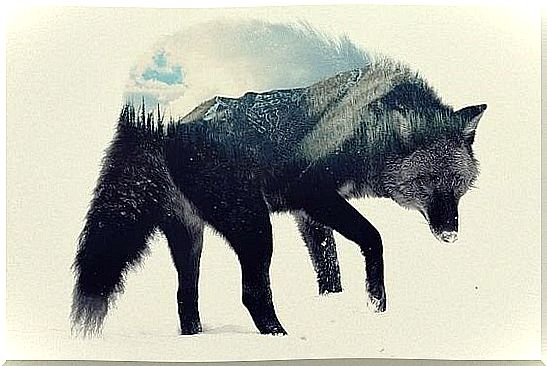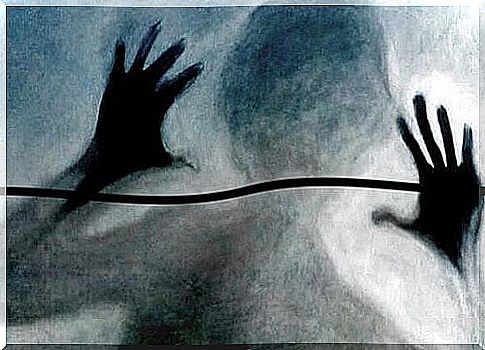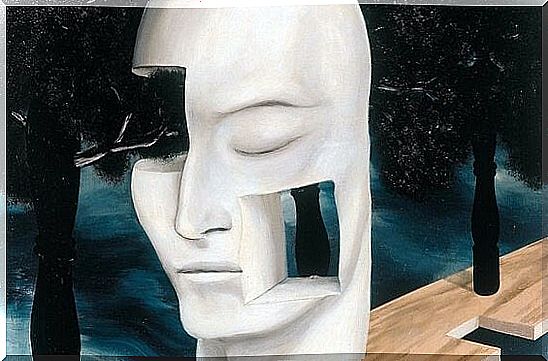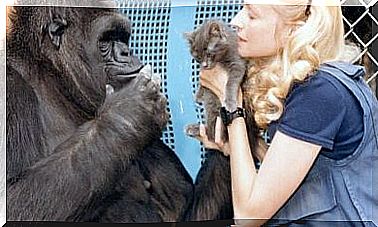Wetiko, The “virus” Of Selfishness According To Native Americans

According to some Native Americans, the Wetiko is a bad spirit that usually invades the human being’s mind. It is the “virus” of selfishness, a psychic pathogen that forces a person to feed his own needs like a hungry being who is never satisfied. Such presence leads us to a kind of involution in which, sooner or later, humanity becomes its worst enemy.
This curious and at the same time unsettling vision is described in an almost must-read book. It was Paul Lévy, a well-known admirer of Carl Jung’s legacy and regular columnist for the newspaper “The Guardian”, who shaped a work worthy of reflection entitled “Dispelling Wetiko”. According to him, we live in a moment in which a great part of the psychosocial phenomena that surround us show that the “virus” of selfishness is more present than ever.
Now, the legacy Levy wants to leave us with his book is far from having a negative message, of repression or warning, quite the opposite. Every virus looks for a host to invade and feed on. However, each of us can put up adequate defensive barriers and strengthen our psychological “immune system” so that this doesn’t happen.
It’s an interesting reflection worth delving into…

Wetiko, human selfishness and Carl Jung’s concept of shadow
Historian Jack Forbes explained in his book “Colombus and Other Cannibals” that when indigenous communities came into contact with all those European conquerors who sought to invade their lands and their world, they defined them as people infected by Wetiko. It was the Cree tribe of Canada who used this definition for the first time, although the Ojiwa, for example, used the well-known term “Windigo”.
In any case, the vision they had of the white or “civilized” man was of a being affected by the “virus” of selfishness, an evil entity that made them want for themselves the vital force and resources of nature and the rest of beings. humans. For his part, Paul Lévy explains in his book that this idea is the same that Carl Jung used to talk about the concept of shadow, an archetype of the unconscious that, in reality, we all share.
Thus, dimensions as common as jealousy, greed, the yearning for dominance and selfishness itself, are actually a product of our unconscious collectivity, our darkest shadows, and the “I” dissociated from consciousness is what gets carried away by worst acts. We could say, therefore, that that evil spirit already defined by the American Indians was for Jung a different entity, something that never came from outside to possess us, but that was always inside us.
In fact, we all carry this shadow within us, but it’s up to us to give it more or less power…

How to beat the virus of selfishness
We can overcome and eliminate the “virus” of selfishness from our lives. One way to do this is to become familiar with what Carl Jung called “daemon”, our shadow demon. So, something that we should have evident from the beginning is that this demon feeds and grows out of greed, envy, contempt or the need for dominance. All of these dimensions have, in turn, had dire effects throughout our history.
Wetiko’s evil ruled our reality for a long time. What’s more, these days it easily makes its way through many of our most common social groups. We empower the virus, obey it, and let it go. Therefore, as Carl Jung explained to us in his time in books such as “Finding the Shadow”, our responsibility is to become aware of this and to make all the impulses that navigate our unconscious abysses conscious as well.
If we all let ourselves be carried away by these impulses, to own what the other has, to manipulate our family members for our own benefit, or to obtain as much benefit as possible even if the cost would harm others, we would fall into a collective psychosis in which everyone we would end up getting lost. Selfishness is not a modern evil, it is an ancient disease that we have not yet eradicated.

Paul Levy reveals in an almost illuminating way that in order to work our own shadow and thus manage to dispel or dissuade Wetiko, we must practice self-reflection. In the end, this inner demon is nothing more than the entirety of our personality, albeit undeveloped, undeveloped, and neglected.
It is a part of ourselves that we hide: in so doing, we allow him to seek his food, to feed on greed, envy and contempt to fill his voids. Therefore, let us be able to cure the “virus” of selfishness by working on our internal conflicts, enhancing our personal knowledge and dealing with this shadow that diminishes our quality of life and the very concept of humanity.









